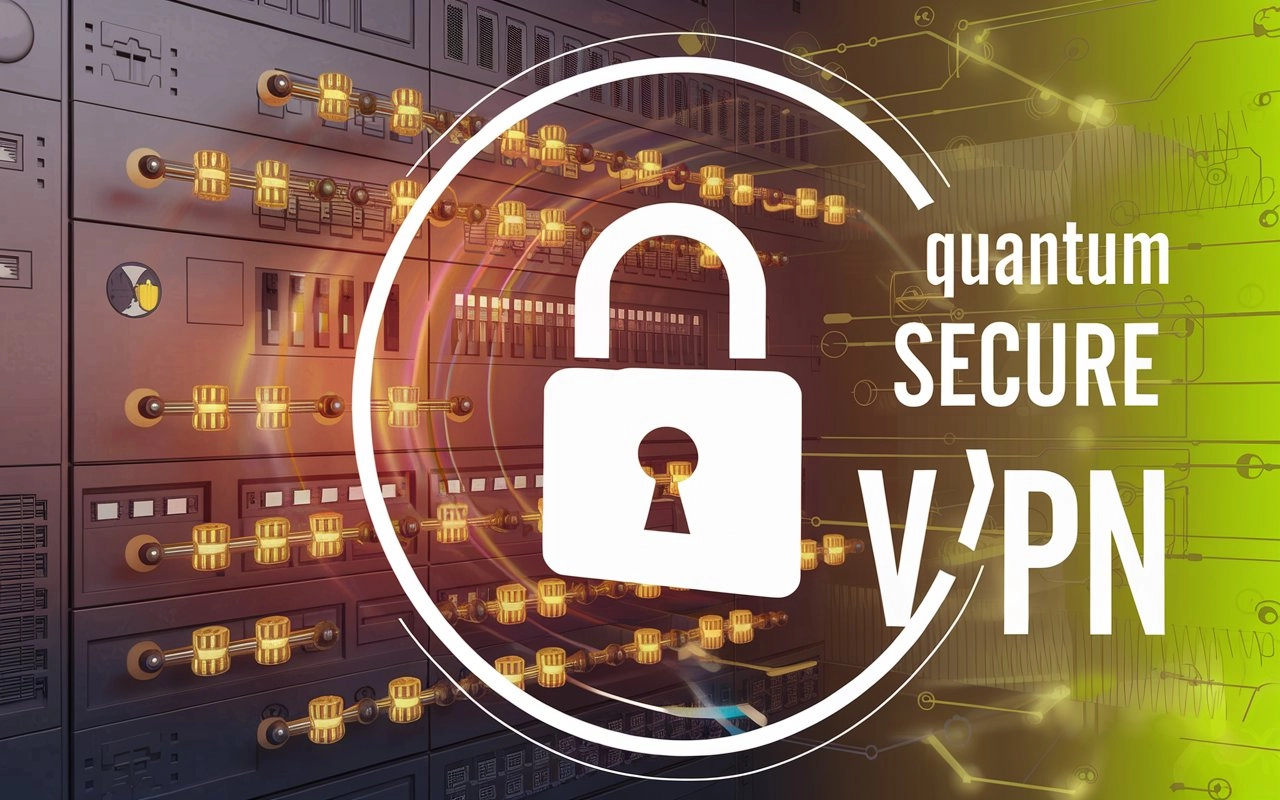Ensuring Unconditional Security of VPN Communications with Quantum Key Exchange

During the COVID-19 pandemic and its aftermath, enterprises have seen an increase in cyberattacks. This experience has shown organizations the importance of strengthening cybersecurity measures and led to a better understanding of the challenges in digital transformation and data protection. While digital transformation brings new opportunities, it also brings new security challenges. Today, businesses use VPNs with end-to-end encryption, believing them to be the safest way to transfer critical data. However, even these systems have vulnerabilities, which is a serious problem.
Vulnerabilities of modern VPNs: quantum technologies to the rescue
The main vulnerabilities of modern VPNs are in the following areas:
- Vulnerabilities of encryption protocols. Modern cryptographic methods, such as RSA or ECC (elliptic curve cryptography), are based on mathematical problems that are very difficult to solve. For example, the problem of factoring large numbers or finding a discrete logarithm. Currently, these problems are so complex that they require a huge amount of time and computing resources to solve, which makes these methods effective for data protection. However, with the development of quantum computers that can quickly solve such problems, the security of modern cryptographic methods may be at risk.
- Risks during data transmission. Even with complex encryption algorithms, data can be intercepted and subjected to brute force attacks.
- Human factor. Errors in the use or setting up a VPN can lead to data leaks and a decrease in the level of security.
Quantum Key Distribution (QKD) is a revolutionary technology that applies the principles of quantum mechanics to organize unconditional security of information transfer.
QKD uses quantum particles – photons - to transport encryption keys. Even the most modern attempt to intercept these photons changes their state, which is immediately detected by the sender and receiver.
According to the principles of quantum mechanics, measuring a quantum state inevitably changes this state. This means that an attacker cannot intercept a key without leaving traces of his intervention. In quantum mechanics, there is also a theorem about the impossibility of exact cloning of an arbitrary quantum state, which excludes the possibility of creating copies of transmitted quantum keys. This property makes QKD resistant to attempts to copy and replace data.
Even with the development of quantum computing, which can break many traditional cryptographic systems, QKD remains secure, since it is based on physical principles, and not on computational complexity. This ensures long-term data protection, as even future technology developments will not be able to compromise quantum security.
Although QKD is still in the development and implementation stage, it has already proven its effectiveness and viability in practice. Today, there are several real-world applications and implementations of QKD in various industries: commerce, finance, research, and pilot projects.
Advantages of Using QKD in VPN
Using quantum key exchange in VPN will solve many existing problems and increase the level of security to unconditional:
- Protection against quantum attacks. The development of quantum computers poses a threat to many existing cryptographic algorithms, such as RSA and ECC. Quantum key exchange is protected from these threats, as it is based on physical principles, not on mathematical problems.
- Detection of interception attempts. Any attempt to intercept quantum keys is immediately detected due to the change in the state of quantum particles. This will allow immediate action to prevent information leakage.
- Integration with existing systems. Quantum key exchange can be integrated into existing VPN systems, providing an additional layer of security without the need to completely replace the infrastructure. This continuity will allow enterprises to use QKD in combination with existing encryption methods to create multi-layered data protection.
- High level of confidentiality. QKD provides protection against both classical and quantum attacks, making data transmission via VPN as secure as possible. This strengthens user trust in the system and ensures the protection of critical information.
- Efficient key management. QKD allows you to automate the key management process, which reduces the likelihood of human error. The ability to frequently and securely update keys increases the overall security of the system.
Quantum key exchange is a key technology of the future for ensuring the security of data transmission in VPN. In the context of growing threats and the development of quantum computing, QKD is becoming a necessary element for protecting critical information.
Private VPN server: reliable in any conditions
Private VPN server provides an additional level of control and protection when using any VPN-related technologies, including QKD. Using a personal server minimizes the risks associated with vulnerabilities in shared VPN networks and provides a higher level of privacy and security for individuals and small organizations.
You can learn more and buy a private VPN server on Private VPN server. It also provides rental terms and conditions, payment methods, server geography, answers to frequently asked questions, and much more.